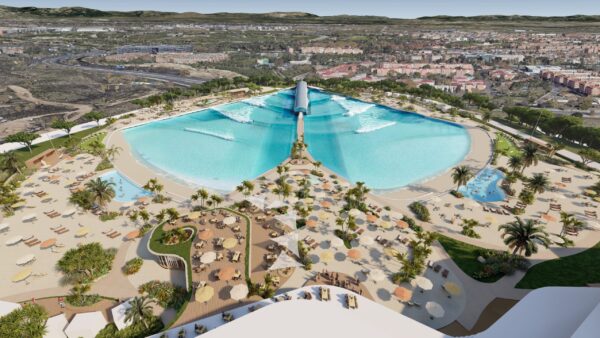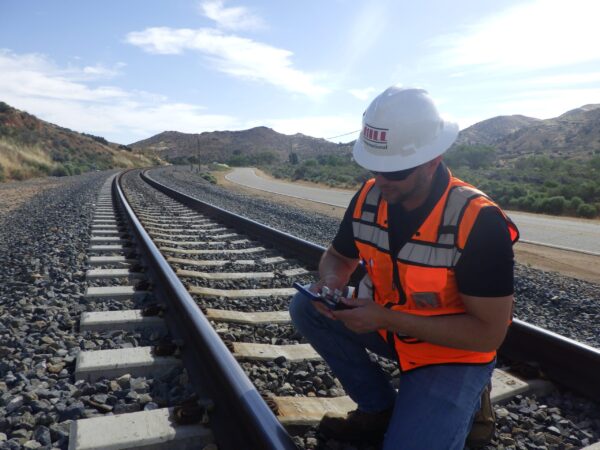
April 20, 2025 | Articles
Sustainable Scaling: Solutions for Managing Risk on Europe’s Data Center Projects

Europe’s residential sectors are as diverse as the continent’s peoples and cultures. Developers in Eastern Europe, for example, operate in markets where government support is strong and growth has recently achieved near-record highs. While in Western Europe’s more mature residential markets, builders focus on meeting the high-quality standards of a demanding clientele and shifting demographics. Hill International, Inc.’s (Hill) work in Spain, Poland, and Turkey exemplifies the challenges and opportunities of Europe’s residential sector and provides a showcase of how the company’s local experts help our residential development clients deliver their projects as planned.
Spain
Hill has operated in Spain for more than 22 years, managing complex projects and programs in the healthcare, commercial, hospitality, and retail sectors, as well as many residential developments. Most recently, Hill managed and/or supported several high-profile residential projects along the Costa del Sol, the southern coast of Spain. This includes Higueron West 217, with more than 900 homes, and Icon in Marbella, both developed by Urbania International. Hill also played an important role in the well-known Sotogrande urbanization project, where we managed the construction of the new Club la Reserva Sotogrande and the conceptual development of two other projects: The Seven and The 15. Both developments delivered high-end, single-family homes designed by renowned architects and featured high-end amenities and finishes, reflecting the tastes and demands of a sophisticated and increasingly foreign clientele. In addition to our work along the Costa del Sol, Hill has worked with some of Spain’s largest residential builders on complex housing projects. For example, since 2015 Hill has managed more than 50 new projects totaling about 2,000 individual residences for Neinor Homes, the second largest developer in the nation in terms of total units. Hill also managed the development of more than 900 new dwellings for Q21 Real Estate, a residential property company based in Madrid. Baupost, a U.S. investment fund, also participated in this project.
This depth and breadth of experience provides Hill with a unique insight into the evolution of Spain’s housing market, and, combined with the insights of our in-house experts, enables us to help our clients develop their projects, no matter what sort of products they want to launch, by advising on the challenges and opportunities unique to each case.
Hill’s management of the recently completed Tirso de Molina, Barceló, and Calle Santa Isabel projects in Madrid for 1810 Capital Investments provides evidence for the market’s latest trends. These projects transformed existing historical buildings into modern, must-see properties while conserving protected, historical elements. Similar examples in Hill’s portfolio can be found in Esprocenda 32 and Serrano 53, also in Madrid, as well as Via Augusta 59 in Barcelona. Each of these projects reflects an increased demand for housing options with high-end amenities and finishes. These projects also reflect the efforts of some investors to find prime, often-underdeveloped locations in Spain’s city centers and develop products there to meet the demands of an important segment of the local market.
The Spanish residential market is also influenced by trends in other European countries, including build-to-rent (BTR) developments and senior housing. Currently, more developers are opening up to housing solutions that complement their traditional business and strengthen their market position through diversification. Evidence of these trends are the doubling of BTR investments since 2018, which have already reached €2 billion in 2020, and the mobilization of new players in the senior living sector to meet a demand that, according to experts, will reach 10,000 beds in the next decade.
Hill’s local team in Spain provides an invaluable service to developers and investors by developing feasibility and budget estimates as part of their business plan inputs for both BTR and senior living developments. Our experts even provide consultancy services to help developers transform projects that were conceived as built-to-sell into BTR products in accordance with these new trends.
Hill expects all these trends to resume in Spain once the current COVID-19-induced slowdown ends. When that happens, Hill’s project managers and consultants will help the country’s developers to explore new residential concepts while minimizing project risks. Our understanding of growth factors, demographic trends, and evolving owner demands provides our clients with a unique perspective on how best to achieve project goals. We look forward to serving at the nexus of Spain’s next generation of residential projects, offering an objective perspective to the design and property teams and helping to fit new products into the developing residential business model.
Poland
Hill has been active in the Polish residential market since 1991. Hill helps our residential clients in Poland minimize the risks inherent in the construction process and enjoys a strong reputation for successfully managing major housing developments. Since entering the market, Hill has managed and supervised nearly 30 residential projects, supporting the delivery of more than 4,500 residential units totaling nearly 250,000 SM.
Hill gained its experience in Poland through a diverse portfolio of projects—from single-family houses like Oakland Park in Piaseczno or Saritor Park in Krakow, to the iconic Zlota 44: a high-rise tower filled with luxury apartments in the heart of Warsaw. Other notable Hill projects in the sector include Ogrody Kabackie, Renoir Residence, Nowe Bielany, Holland Park, La Tour Residence, Arte Nova, Wilanowska, Malborska, Nove Powisle, Madison Apartments, Impresja Apartments, and Rezydencja Krolowej Marysienki, all located in Warsaw, and the Bacciarellego in Wroclaw.
Many developers invite Hill onto their teams at the conceptual stage. When Hill is involved early in the project life cycle, we can review project documentation and suggest ways to optimize project parameters with more effective design solutions and standardization of construction materials. Hill also offers in-depth analyses of site development conditions and constraints. For example, Hill provided due diligence services for the mixed-use redevelopment of a nearly 150-acre plot in Warsaw and several marina brown-field sites in Tri-City on Poland’s Baltic Coast. Our early reviews identified obstacles before they could impact project progress.
Having worked on diverse Polish residential projects from their earliest stages through to completion and handover, Hill’s professionals have become quite familiar with the Polish residential market. Accordingly, we have observed some of the important trends and opportunities emerging in the market.
In 2019, Poland’s developers and banks experienced great success in the housing market. Yet, despite this growth, challenges remain for developers. These challenges include meeting the needs of an aging population, accommodating foreign investment into the market, demand for new housing technologies and amenities, and the largely unknown impact of COVID-19.
More than 207,000 new flats were created in Poland in 2019. That is as many as were built in the record-breaking 1970s—a decade of booming housing construction in the country. A positive economic environment and record-low interest rates for housing loans resulted in high demand, as the Polish Bank Association reported in 2019 that the quantity and value of lending exceeded the expectations of real estate finance market analysts. Also in 2019, the sector saw an almost 64% increase in the number of flats built as a part of social rental housing for individuals with limited incomes, as social housing associations constructed about 2,500 apartments.
One of the factors that created this growth in social rental housing flats is the Mieszkanie Plus government program. Mieszkanie Plus has offered affordable housing for rent to senior, disabled, income-disadvantaged, and other members of the Polish population since 2018. According to the Deputy Prime Minister of Poland Jadwiga Emilewicz, a variety of developers and local government officials are involved in carrying out the program. As the Mieszkanie Plus program continues in the coming years, the number of affordable apartments for rent will continue to grow.
Despite these indicators of success, the sector is facing significant changes in 2020. Poles are becoming more willing to move. They are also paying more attention to amenities, such as the ability to charge an electric vehicle or to remotely change heating and lighting parameters. In addition, single individuals and childless couples constitute a significant portion of the customer base, which means that new apartments are smaller than a decade ago. The residential sector will also soon be heavily influenced by seniors: individuals born in the post-war period will be looking for facilities tailored to their needs.
The COVID-19 epidemic has also disturbed the mood in Poland’s housing market. Increasing unemployment, uncertainty about future income, and weakening housing, consumption, and investment demands are changing the economic situation of consumers, producers, and investors.
Using a construction manager such as Hill benefits residential projects whether the market is experiencing positive or negative economic trends. In addition to better-quality work and better schedule results, owners can achieve savings of up to 15% on construction costs by leveraging multi-phase support from an experienced construction management team. Drawing upon our experience across multi-phase residential project delivery, Hill’s professionals are ready to help Polish owners make the most of opportunities and navigate new challenges emerging in the residential market.
Turkey
Hill’s Turkey and Commonwealth of Independent States (CIS) organization supports clients with large-scale projects throughout the region. Since entering the market, Hill’s portfolio in the Turkey and CIS region includes more than 500 projects, the vast majority of which have been private sector real estate developments (commercial, retail, office, hospitality, educational, healthcare, and of course, residential).
Hill’s professionals specialize in delivering large, residential projects in this highly competitive market, where owners work hard to capture limited demand. In addition to its usual role as project manager handling all project-related activities on behalf of our clients, Hill has also served as a technical advisor on Turkish housing projects. For example, Hill’s professionals provided planning and cost consultancy services for Sapphire Istanbul, which was the tallest building in continental Europe when completed. Likewise, Hill provided lender’s technical advisory services for the 290,000 SM Çiftçi Towers in the heart of Istanbul.
This experience is invaluable to our clients in Turkey’s changing market. According to Mordor Intellegence’s report “Residential Real Estate Market in Turkey- Growth, Trends, and Forecast (2020-2025),” new home sales in Turkey averaged approximately 48,800 units per month from 2013 until 2019—but the market has experienced some volatility in recent years. Sales reached an all-time high of 74,815 units in October 2018 and a record low of 23,265 units in June 2019.
To support their initiatives, Turkish property developers have established international offices for attracting foreign investors and promoting their projects. This strategy has been successful, as investors from Qatar, Russia, Iran, Saudi Arabia, the other Turkic Republics, and the United Arab Emirates have shown keen interest in Turkish projects. In fact, a survey conducted by the U.S.-based, international real-estate investment company Remote Ventures ranks Turkey as the world’s 14th most advantageous real estate market for foreigners, out of 200 countries analyzed.
The attractiveness of the market to foreign investment is evidenced by data from the Turkish Statistical Institute. According to the Institute, the number of houses sold to foreigners jumped 11% and reached 11,068 in the January-March period of 2020, despite a short-term stagnation in the housing market due to COVID-19. For comparison, 11,068 is nearly half the amount sold in total in 2019.
Hill has regularly helped international residential developers realize their investments in the country. But Hill’s professionals have also enabled local developers to successfully deliver high-quality products, such as the beautiful Kempinski Residences Astoria building in Istanbul. We intend to leverage this experience to serve our local clients in Turkey, helping them maximize their return on investment regardless of the residential project type or locale.
Today, even during the COVID-19 crisis, Turkey’s housing sector is strongly supported by the Turkish government with initiatives and advantageous mortgage terms. Likewise, foreign investment continues to play an important part in the sector. With strong local teams backed by Hill’s global and European organizations and a track record of successfully completed assignments, Hill can offer all the technical and project management services that may be required by developers who plan to build in this promising region.
Conclusions
Through all of Europe, developers, designers, governments, and builders are working together to construct niche housing options to meet a multitude of needs for locals and foreigner owners alike. In Spain, a popular destination filled with coastal vacation homes and historic urban districts, developers are grappling with new trends in residential construction and incorporating modern designs into their housing portfolios. Driven partially by the government program Mieszkanie Plus, Poland is experiencing a surge in its social flat market. And in Turkey, a competitive housing landscape still offers many opportunities for astute developers. However, COVID-19 is complicating otherwise optimistic projections. From our experience in Spain, Poland, and Turkey, we know that construction, especially residential construction, has always been extremely important to these national economies. Driven in part by foreign investment and government initiatives, it remains so today.
Of course, the factors influencing these three housing markets go well beyond the scope of the brief discussion offered here. Nevertheless, regardless of the complexity or scope of a residential project or the specific trends and challenges of a local market, Hill has the expertise and experience to benefit owners and developers. Given the uncertainty surrounding the COVID-19 pandemic and its long-term economic impacts on Europe’s housing markets, Hill’s skillsets are as valuable as ever.
For more information about Hill and to speak with one of our professionals in your country, please visit www.hillintl.com.
About the Authors
Marián Prieto is the vice president and country manager for Hill’s operations in Spain. With more than 25 years of professional experience, she has held management positions in several of the largest Spanish companies in the real estate and construction sectors, including investment funds related to the hotel sector, major construction companies, and consulting and project management firms. She joined Hill in 2010 and after 5 years of leading project management operations was appointed vice president and country manager for Spain. She is currently leading a new phase in the company’s growth process.
Susana Laguna is business development coordinator in Hill’s Madrid office. An industrial engineer with a master’s degree in project management from La Fundación Antonio Camuñas, Madrid, Spain, Susana has 15 years of professional experience. She began her career at Hill as project manager and later joined the business development team, a position from which she has provided continuous support to the company’s marketing and communication initiatives.
Artur Dziubak is a sales and business development manager with a civil engineering background, based in Hill’s office in Warsaw, Poland. He has 25 years of professional experience in sales gained with many multinational corporations, including 20 years spent in the commercial real estate sector. For the past 15 years, Artur focused his career on working for renowned project construction management providers. He joined Hill’s team in 2013 and offers continuous support to the company’s sales, marketing, and operational efforts.
Ovunc Birecik is a civil engineer with an MBA from Cukurova University, Adana, Turkey, and more than 21 years of professional experience. He has been involved in several large-scale public and private development programs in the infrastructure, residential, industrial, healthcare, and hospitality sectors as the project manager/project director. He currently serves as a project director at Hill’s office in Istanbul, leading projects in Turkey and providing support to the region’s business development efforts.
Share

April 20, 2025 | Articles
Sustainable Scaling: Solutions for Managing Risk on Europe’s Data Center Projects

March 12, 2025 | Articles
Get Stoked: Hill International Makes Big Waves in Spain’s Surfing Scene

March 9, 2025 | Articles
Project Manager TJ Pinales: Helping Along the Road in San Antonio

March 4, 2025 | Articles
Balancing the Equation: An Interview with Project Manager Tracy Wiyrick

March 1, 2025 | Articles
A Lifelong Project: Calypso Kyriakopoulou’s Multifaceted Career in Construction

February 10, 2025 | Articles
Dual Delivery: A Viable Strategy for Complex Transit Projects

January 23, 2025 | Articles
Plotting a Roadmap to Success on the Torres de Colón Renovation

December 12, 2024 | Articles
Progressive Design-Build for Rail and Transit Projects: Room to Run

December 9, 2024 | Articles
Unlocking Growth: Maximizing the Benefits of the SBA’s Mentor-Protégé Program